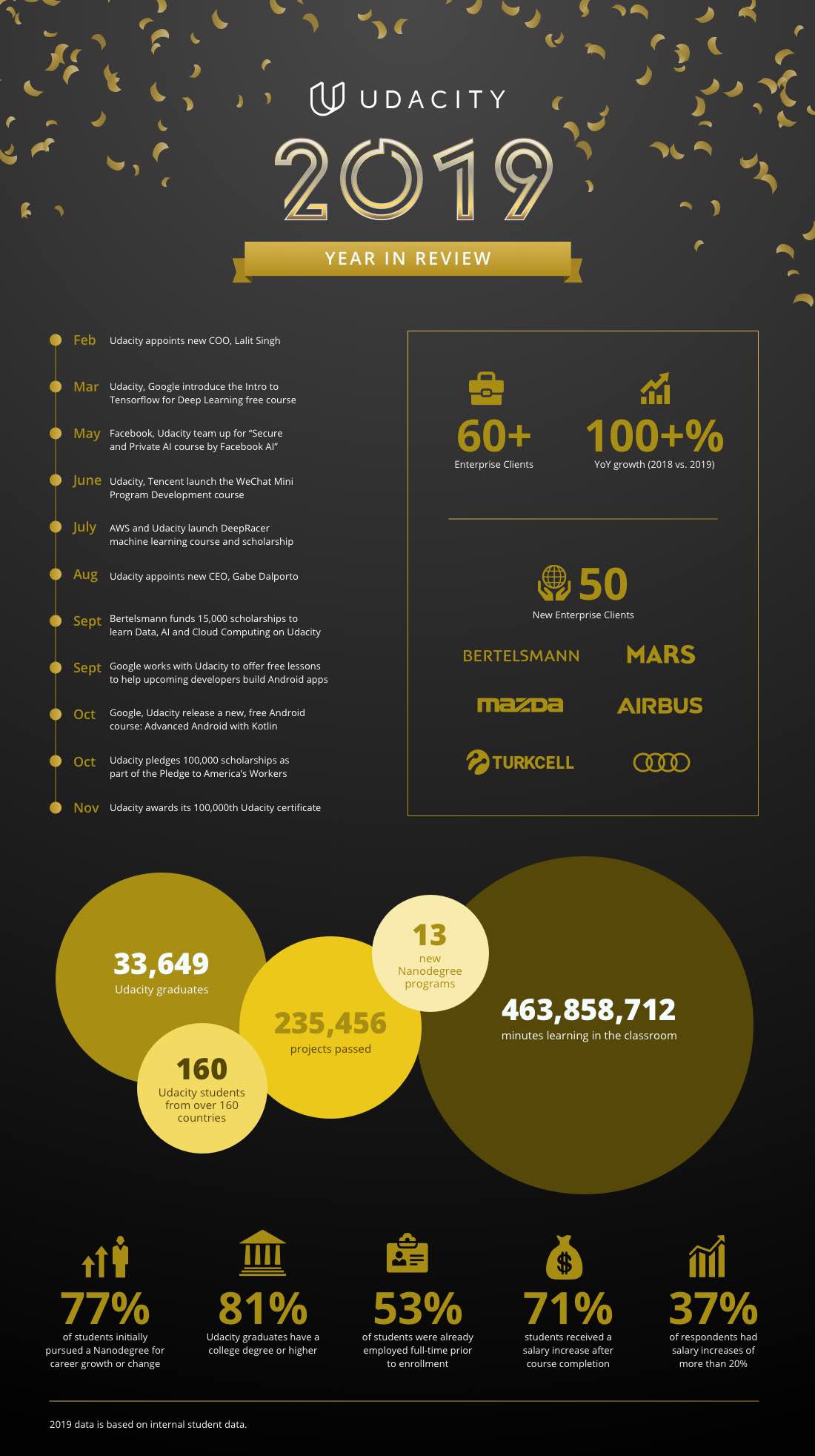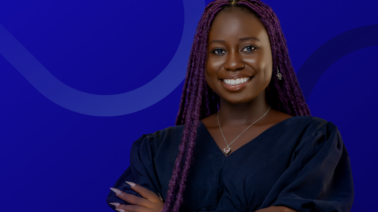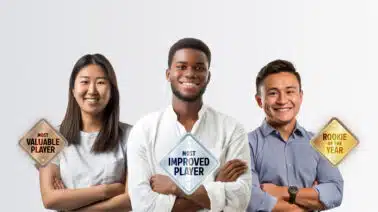As the calendar year comes to a close, it’s natural to look back and compare yourself to where you were this time last year. In December 2018, we were celebrating 50,000 graduates with the story of Anna Preis, who earned a Nanodegree from Udacity and used it to build a career she truly cares about. Now, in December 2019, we’re celebrating 100,000 graduates as well as a load of other exciting achievements this year.
New programs and launches
At Udacity, 2019 was a year of growth. We launched 14 new Nanodegree programs, a machine learning course and scholarship with AWS, and a Private Artificial Intelligence course with Facebook. Scholarship programs were funded by Google and Bertelsmann to help create new engineers. We also pledged to fund 100,000 scholarships to low-income students as part of the Pledge to America’s Workers initiative.
Udacity trains the tech workforce
This year, we gained 50 new enterprise clients, 20 of which are Fortune 500 companies like Airbus and Accenture, to help nurture in-demand skills amongst their employees. We also saw a 60% year-over-year increase in enrollments from enterprise customers in the School of Data and the School of AI in 2019.
Student success
More importantly, what means even more to us than the success of our business is the success of our students. This year, our students spent over 7.7 million hours in the classroom and completed over 200,000 projects. 77% of our students decided to pursue a Nanodegree program for career growth or a job transition.
In a survey we ran this year, our graduates shared how impactful continued education can be. Over 50% of students who enrolled in our courses reported already having a full-time job, and 81% already had at least a college degree. Of the graduates who reported a new job or promotion, 71% received a salary increase after they finished their classes, with 37% of them getting over a 20% raise. We are incredibly proud to see how our students have used their new skills to advance their careers and their lives.
Stats aside, we also love to hear the success stories of those who enroll in our programs. One particular student, Ire, has a story about her Udacity experience that inspires us all to keep learning.
Ire Aderinokun, a student from Nigeria, graduated with a Nanodegree from Udacity this year. While she had been learning how to program on her own, she felt that the next step was to get more formal training with Udacity. “It was,” she says, “an overwhelmingly positive experience and greatly helped boost my confidence in my abilities.” Her experience was so positive, in fact, that she decided to start a scholarship for other women in Nigeria to attend Udacity. “Most of the time I am the only black, Nigerian woman in professional situations, and I wanted to try to change that.” Ire now works as a frontend developer and co-founder of BuyCoins, a cryptocurrency exchange for Africa.
Stories like Ire’s help us know that we are on the right path to help our students learn the skills they need, land the jobs they want, and build the lives they deserve. We celebrated the success of every student in 2019 with a graduation ceremony hosted by founder Sebastian Thrun. In his words, “Stay curious, keep an open mind. Most of us are wired to think inside the box, we think if self-driving cars didn’t exist yesterday then how could they possibly exist tomorrow. But the brave ones like yourself don’t think like that.”
We could not be more proud of our graduates, all 100,000 of them, and we look forward to more exciting growth in 2020. We wish you a happy, healthy, and prosperous year.




